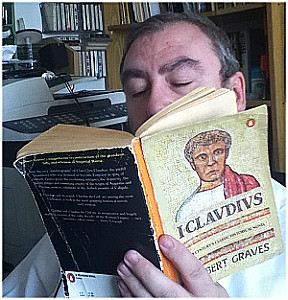A Short History of Almost Everything
Description
Read MoreVocal Characteristics
Language
EnglishVoice Age
Middle Aged (35-54)Accents
British (General)Transcript
Note: Transcripts are generated using speech recognition software and may contain errors.
welcome. And congratulations. I'm delighted that you could make it. Getting here wasn't easy. I know we have a suspect. It was a little tougher than you realise to begin with, for you to be here now, trillions of drifting atoms that somehow to assemble in an intricate and intriguingly obliging manner to create you. It's an arrangement so specialist in particular, that has never been tried before, and it will only exist this once for the next many years. We hope these tiny particles will and complaining Lee engage in all the billions of deft cooperative efforts necessary to keep you intact and let you experience the supremely agreeable but generally underappreciated state known as existence. Why atoms take this trouble. There's a bit of a puzzle. Being you is not a gratifying experience at the atomic level. For all their devoted attention, your atoms don't actually care about you. Indeed, don't even know that you are there. They don't even know that they are there. They are mindless particles, after all, and not even themselves alive. It's a slightly arresting notion that if you were to pick yourself apart with tweezers one atom at a time, you would produce a mound of fine atomic dust, none of which had ever been alive, but all of which had once been you. Yet somehow, for the period of your existence, they will answer to a single of whelming impulse to keep you you. The bad news is that atoms are fickle and their time of devotion is fleeting. Fleeting indeed. Even a long human life adds up to only about 650,000 hours. And when that modest milestone flashes past or at some point thereabouts for reasons unknown, your atoms will shut you down, silently disassemble and go off to be other things. And that's it for you. Still, you may rejoice that happens at all, Generally speaking in the universe. It doesn't so far as we can tell, this is decidedly odd, because the atoms are so liberally and congenial, Lee flock together to form living things on Earth are exactly the same atoms that declined to do it elsewhere. Whatever else it may be, at the level of chemistry, life is curiously mundane. Carbon, hydrogen, oxygen and nitrogen, a little calcium, a dash of sulphur, a light dusting of other very ordinary elements that you wouldn't find in any ordinary drug store, and that's what we need. The only thing special about the atoms that make you is that they make you then, of course, is the miracle of life.
